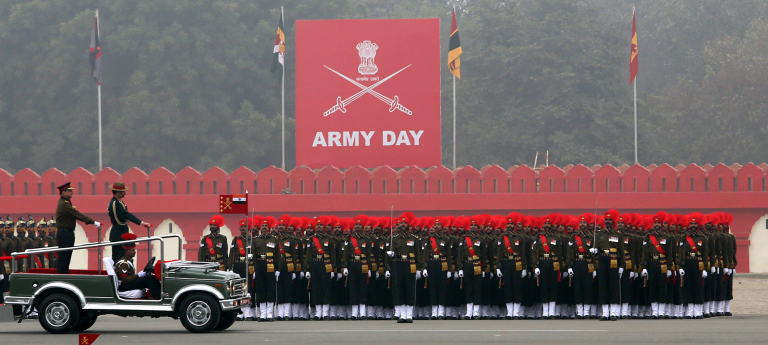Lt Gen Manjit Kumar, COS of the Southern Command inaugurated the Centre of Excellence in Artificial Intelligence & Robotics (CEAR) at the Army Institute of Technology (AIT) in Pune.
Indian Army Inaugurated Centre Of Excellence In AI & Robotics
Lt Gen Manjit Kumar, COS of the Southern Command inaugurated the Centre of Excellence in Artificial Intelligence & Robotics (CEAR) at the Army Institute of Technology (AIT) in Pune. According to a post from the Southern Command, the centre is equipped with the latest 3D printing, CAD modeling tools, sensors/drivers, and interfacing tools for real-time embedded hardware designing.
Additionally, Lt Gen Manjit Kumar presided over the felicitation ceremony of “INNERVE 8,” the largest student-driven hackathon conducted by the Open-Source Software Club at AIT. With a prize pool exceeding ₹10 lakh, “INNERVE 8” provided an excellent platform for all participants, as mentioned in the Southern Command’s post.
The CEAR, nestled within the AIT campus, is a testament to the Indian Army’s commitment to harnessing the power of emerging technologies. This hub of innovation aims to foster an environment where students and faculty can collaborate, research, and develop solutions to real-world problems. The centre’s primary focus is on leveraging artificial intelligence and robotics to create applications that can be employed in various domains, including defence, healthcare, agriculture, and more.
INNERVE 8: The Largest Student-Driven Hackathon At AIT
In addition to inaugurating CEAR, Lt Gen Manjit Kumar also presided over the felicitation ceremony of INNERVE 8, the largest student-driven hackathon conducted by the Open-Source Software Club at AIT.
A Glimpse Into The Past: The Armament Technology Lab At MILIT
Just a day before the events at AIT, Air Chief Marshal VR Chaudhari visited the Military Institute of Technology in Girinagar, Pune. He interacted with participants of the Defence Service Technical Staff Course and delivered a talk on the IAF transition into a contemporary and future-ready aerospace force.
Artificial Intelligence and Robotics
•Artificial intelligence is the branch of computer science concerned with making computers behave like humans.
•AI refers to the ability of machines to perform cognitive tasks like thinking, perceiving, learning, problem solving and decision making.
•AI has evolved in ways that far exceed its original conception. With incredible advances made in data collection, processing and computation power, intelligent systems can now be deployed to take over a variety of tasks, enable connectivity and enhance productivity.
•Already, AI has helped increase crop yields, raised business productivity, improved access to credit and made cancer detection faster and more precise.
•It could contribute more than $15 trillion to the world economy by 2030, adding 14% to global GDP. Google has identified over 2,600 use cases of “AI for good” worldwide.
•The use of robotics (or other forms of intelligent agents) in warfare has existed since WW2. Many of these early robots (such as the US’s ‘Aphrodite’ drones or the Soviet’s tele-tanks) were either ineffective or only useful for specialised operations.











